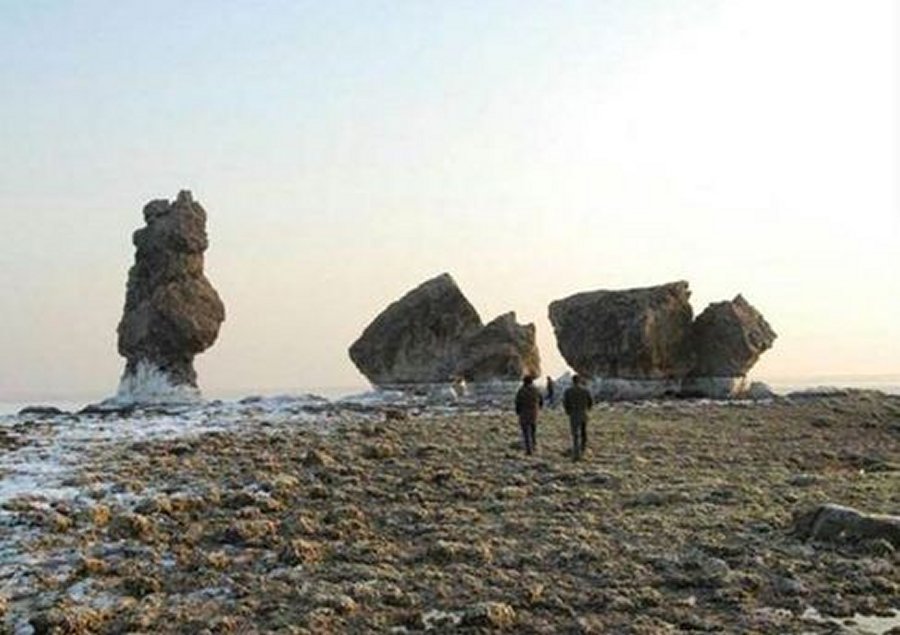Submerged Qin Dynasty ‘Seaside Palace’ Of China’s First Emperor – Found
AncientPages.com - Archaeologists believe they may have found a submerged seaside palace built more than 2,200 years ago by China’s first emperor, Ying Zheng, mainland media reports.
The building, thought to date back to the Qin dynasty (221-207BC), was discovered under the sea off the coast of Suizhong county, in Liaoning province, researchers from Liaoning and Beijing told the Liaoshen Evening News.
The largest discovery was a 60-metre wide square, formed of large stones, which could be the foundations of a large platform for religious sacrifices or other important activities, the archaeologists said.
They also found the remains of a stone road running through the palace.
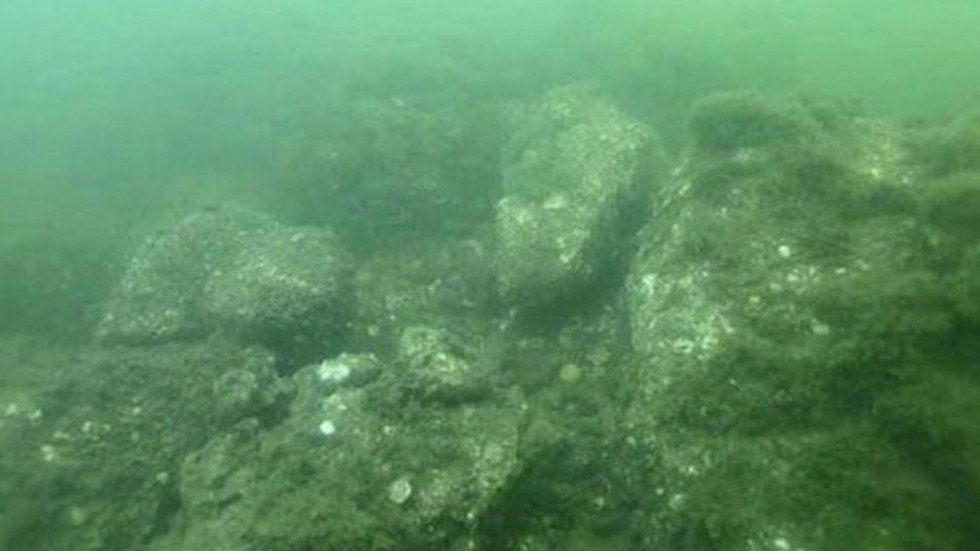
Most of the remains of the Qin dynasty palace lie submerged off the coast of China’s Liaoning province. Photo: Liaoshen Evening News
Local fishermen said they had previously found ancient coins and ceramics on the seabed, while some of the stone walls were clearly visible at low tide.
Ying Zheng, also known as Qin Shihuang, was China’s first ruler, who united the nation by conquering all of the warring states in 221BC.
He is said to have visited the East China Sea coast three times before his death in 210BC in his futile quest for immortality.
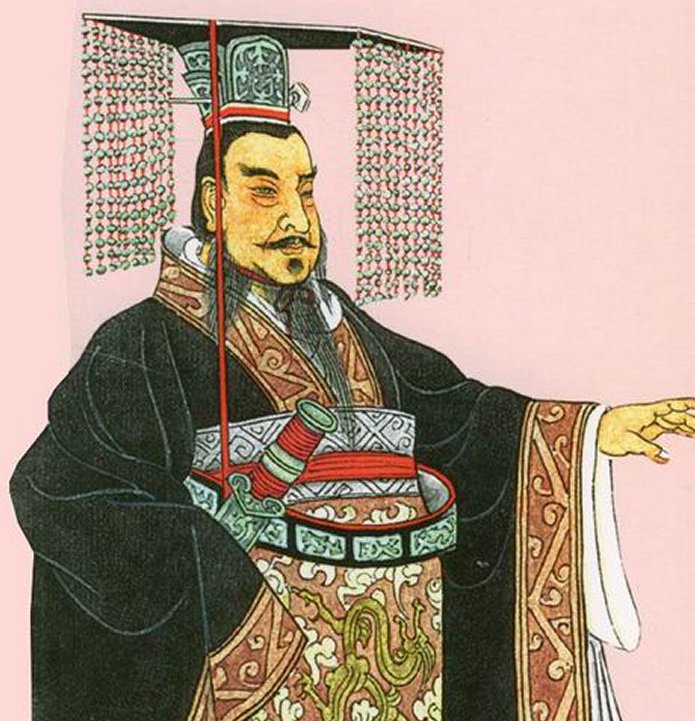
Emperor Qin Shi Huang (259 BC – 210 BC) fascinates people when they talk about the Great Wall and the Terracotta Warriors and Horses – his two greatest achievements to China. As the first emperor of China, he indeed has a profound influence on Chinese history and culture. Credits: I-China.
Emperor Qin Shi Huang (259 BC - 210 BC) fascinates people when they talk about the Great Wall and the Terracotta Warriors and Horses - his two greatest achievements to China. As the first emperor of China, he indeed has a profound influence on Chinese history and culture.
When Ying Zheng unified China, he considered his achievement surpassing the legendary "San Huang (three emperors)" and "Wu Di (five sovereigns)".
He created a new title for himself: "Huangdi" together with "Shi (means the first)", hence get the name "Qin Shi Huang" or "Qin Shi Huangdi", which means he was the first emperor of China. He hoped his descendants would follow in his steps to rule China for eternity.
AncientPages.com
source: South China Morning Post
More From Ancient Pages
-
 Evidence Of Unusual Solar Activity Discovered On Ancient Cuneiform Tablets
Archaeology | Oct 16, 2019
Evidence Of Unusual Solar Activity Discovered On Ancient Cuneiform Tablets
Archaeology | Oct 16, 2019 -
 Siberian Shigir Idol With Seven Faces Is The World’s Oldest Wooden Sculpture
Archaeology | Sep 1, 2015
Siberian Shigir Idol With Seven Faces Is The World’s Oldest Wooden Sculpture
Archaeology | Sep 1, 2015 -
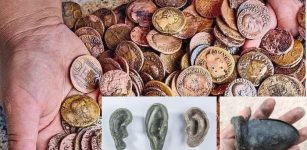 Extraordinary Etruscan And Roman Treasure Trove Unearthed In San Casciano dei Bagni, Italy
Archaeology | Aug 12, 2022
Extraordinary Etruscan And Roman Treasure Trove Unearthed In San Casciano dei Bagni, Italy
Archaeology | Aug 12, 2022 -
 Ancient Egyptian Village That Is Far Predating Egypt’s Oldest Known Pyramid – Discovered
Archaeology | Sep 3, 2018
Ancient Egyptian Village That Is Far Predating Egypt’s Oldest Known Pyramid – Discovered
Archaeology | Sep 3, 2018 -
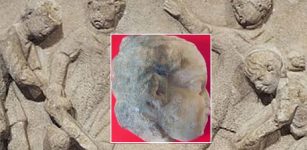 3rd Century AD Marble Child Head, Chamber Pot Unearthed In Roman City Novae
Archaeology | Jul 5, 2019
3rd Century AD Marble Child Head, Chamber Pot Unearthed In Roman City Novae
Archaeology | Jul 5, 2019 -
 10 Enigmatic Ancient Underwater Ruins – Our Oceans Are Full Of Secrets
Featured Stories | Aug 13, 2019
10 Enigmatic Ancient Underwater Ruins – Our Oceans Are Full Of Secrets
Featured Stories | Aug 13, 2019 -
 Genetic Links Between Traits Are Often Overstated – UCLA Study
Archaeology | Nov 28, 2022
Genetic Links Between Traits Are Often Overstated – UCLA Study
Archaeology | Nov 28, 2022 -
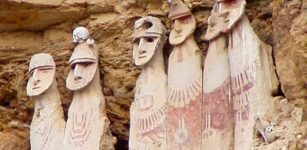 Mysterious Sarcophagi Belonging To The Chachapoyas The Cloud People
Archaeology | Mar 4, 2014
Mysterious Sarcophagi Belonging To The Chachapoyas The Cloud People
Archaeology | Mar 4, 2014 -
 Yenikapı Excavations Reveal 8,500-Year-Old Artifacts
Archaeology | Jan 10, 2016
Yenikapı Excavations Reveal 8,500-Year-Old Artifacts
Archaeology | Jan 10, 2016 -
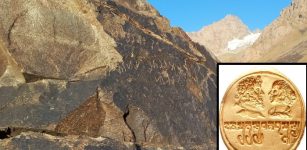 Enigmatic Ancient ‘Unknown Kushan Script’ Deciphered By Scientists
Archaeology | Jul 13, 2023
Enigmatic Ancient ‘Unknown Kushan Script’ Deciphered By Scientists
Archaeology | Jul 13, 2023 -
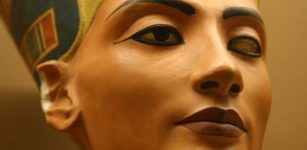 Nefertiti Was A Powerful Queen But Never A Pharaoh – Researcher Says
Archaeology | Jan 23, 2018
Nefertiti Was A Powerful Queen But Never A Pharaoh – Researcher Says
Archaeology | Jan 23, 2018 -
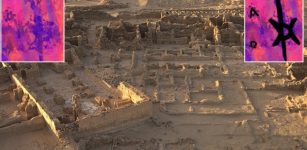 Rare Medieval Tattoo Depicting A Christogram Unearthed In Ghazali, Sudan
Archaeology | Nov 9, 2023
Rare Medieval Tattoo Depicting A Christogram Unearthed In Ghazali, Sudan
Archaeology | Nov 9, 2023 -
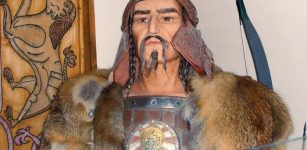 Drought Encouraged Attila’s Huns To Attack The Roman Empire – New Study
Archaeology | Dec 15, 2022
Drought Encouraged Attila’s Huns To Attack The Roman Empire – New Study
Archaeology | Dec 15, 2022 -
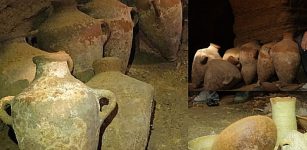 Man-Made Square Burial Cave Dated To Rameses II-Era Accidentally Found In Israel
Archaeology | Sep 19, 2022
Man-Made Square Burial Cave Dated To Rameses II-Era Accidentally Found In Israel
Archaeology | Sep 19, 2022 -
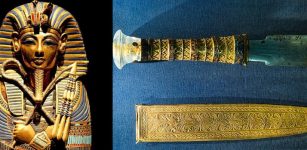 Tutankhamun Had An Ancient Dagger From Outer Space
Archaeology | Jun 1, 2016
Tutankhamun Had An Ancient Dagger From Outer Space
Archaeology | Jun 1, 2016 -
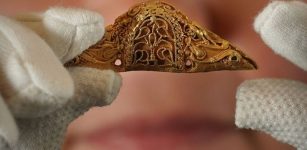 Exceptionally Rare 1,300-Year-Old Golden Pommel Found In Blairdrummond, Scotland
Archaeology | Nov 1, 2022
Exceptionally Rare 1,300-Year-Old Golden Pommel Found In Blairdrummond, Scotland
Archaeology | Nov 1, 2022 -
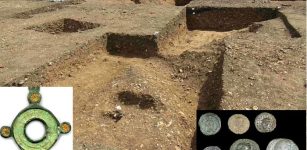 Incredible Ancient Roman ‘Service Station’ With Hundreds Of Artifacts And Dozens Bodies Found In Hertfordshire, UK
Archaeology | May 12, 2022
Incredible Ancient Roman ‘Service Station’ With Hundreds Of Artifacts And Dozens Bodies Found In Hertfordshire, UK
Archaeology | May 12, 2022 -
 Oldest Known Spearthrowers Found At 31,000-Year-Old Archaeological Site Of Maisières-Canal
Archaeology | Nov 6, 2023
Oldest Known Spearthrowers Found At 31,000-Year-Old Archaeological Site Of Maisières-Canal
Archaeology | Nov 6, 2023 -
 Spectacular Find – 20-Meter-Long Viking Ship Discovered In Salhushaugen Gravemound, Norway
Archaeology | Apr 21, 2023
Spectacular Find – 20-Meter-Long Viking Ship Discovered In Salhushaugen Gravemound, Norway
Archaeology | Apr 21, 2023 -
 200 Tons Of Silver Hidden From The Romans On The Shores Of The River Lahn
Archaeology | Feb 23, 2023
200 Tons Of Silver Hidden From The Romans On The Shores Of The River Lahn
Archaeology | Feb 23, 2023

